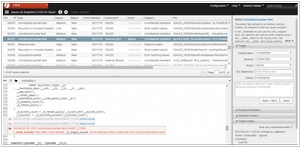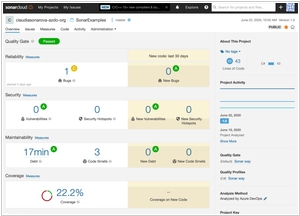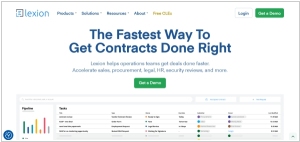Coverity vs Sonar
November 09, 2023 | Author: Michael Stromann
Coverity and Sonar are both widely used tools in the realm of software development, each with its own distinct focus and features. Coverity is renowned for its static application security testing (SAST) capabilities, concentrating on the early identification of security vulnerabilities and code quality issues. It employs advanced static analysis techniques to scan source code for potential problems, making it a valuable asset for developers striving to build secure and robust software. Coverity's strength lies in its ability to detect complex issues in the codebase, providing insights into potential security threats and aiding in the overall improvement of code quality.
On the other hand, Sonar is a comprehensive platform that offers a broader range of features, including static code analysis, code coverage, code duplication detection, and continuous inspection. While it does cover aspects of static analysis, Sonar is not solely focused on security testing. Instead, it provides a holistic view of code quality, emphasizing maintainability, reliability, and adherence to coding standards. Sonar is often integrated into the continuous integration/continuous deployment (CI/CD) pipeline, allowing for real-time feedback to developers and facilitating a culture of continuous improvement throughout the software development lifecycle.
See also: Top 10 Application Security Software
On the other hand, Sonar is a comprehensive platform that offers a broader range of features, including static code analysis, code coverage, code duplication detection, and continuous inspection. While it does cover aspects of static analysis, Sonar is not solely focused on security testing. Instead, it provides a holistic view of code quality, emphasizing maintainability, reliability, and adherence to coding standards. Sonar is often integrated into the continuous integration/continuous deployment (CI/CD) pipeline, allowing for real-time feedback to developers and facilitating a culture of continuous improvement throughout the software development lifecycle.
See also: Top 10 Application Security Software




